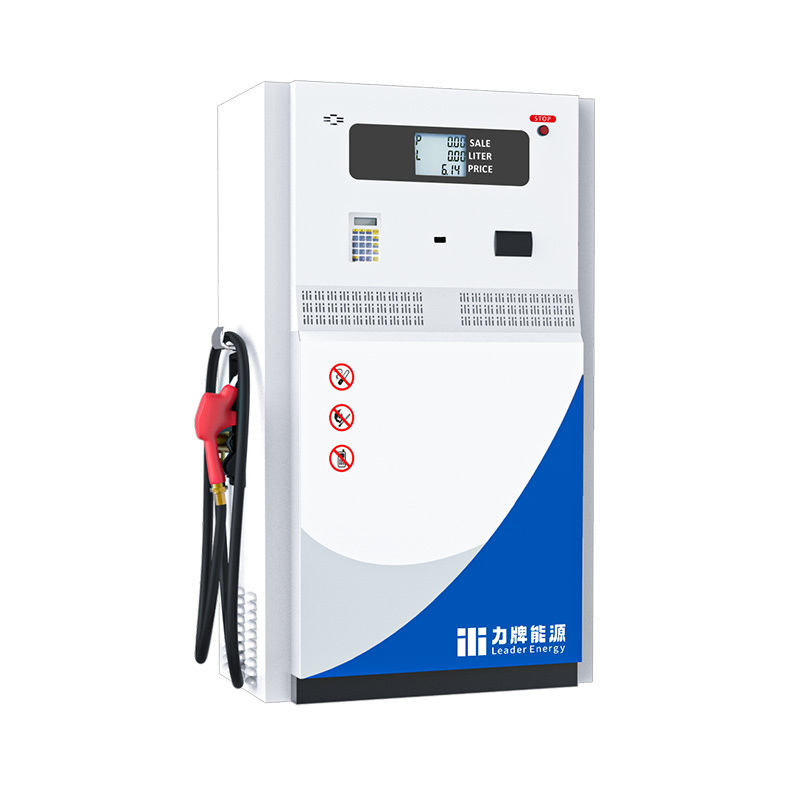Understanding Heavy-Duty Fuel Dispensers: Essential Tools for Efficient Fueling Operations
Heavy-duty fuel dispensers are specialized equipment designed to handle the demands of high-volume fuel dispensing. Typically found in commercial and industrial settings, such as trucking terminals, large fleet operations, and agricultural facilities, these dispensers are built to withstand rigorous use while delivering fuel safely and efficiently.
One of the primary features of heavy-duty fuel di
Heavy-duty fuel dispensers are specialized equipment designed to handle the demands of high-volume fuel dispensing. Typically found in commercial and industrial settings, such as trucking terminals, large fleet operations, and agricultural facilities, these dispensers are built to withstand rigorous use while delivering fuel safely and efficiently.
One of the primary features of heavy-duty fuel dispensers is their ability to manage large quantities of fuel. Unlike standard dispensers, which may be sufficient for light use, heavy-duty models are engineered to support higher flow rates and larger tank capacities. This capability is crucial for businesses that rely on frequent and quick refueling of vehicles, as it minimizes downtime and enhances operational efficiency.
Another significant advantage of these dispensers is their advanced technology. Many heavy-duty fuel dispensers are equipped with sophisticated metering systems that ensure accurate fuel measurement. This precision not only helps in maintaining inventory control but also plays a vital role in regulatory compliance. Moreover, some models come with integrated payment systems, enabling seamless transactions at the pump and reducing wait times for customers.
Safety is also a paramount consideration with heavy-duty fuel dispensers. These units are designed with robust safety features, including automatic shut-off valves, leak detection systems, and emergency stop buttons. Such features help prevent fuel spills and protect both the environment and personnel from potential hazards associated with fuel handling.
When selecting a heavy-duty fuel dispenser, businesses should consider several factors. The first is the flow rate, which should align with the refueling needs of the operation. Additionally, it’s essential to evaluate the dispenser's compatibility with various fuel types, as some models may only be suitable for gasoline or diesel, while others can accommodate biofuels or alternative energy sources.
Maintenance is another crucial aspect. Regular servicing and inspection of heavy-duty fuel dispensers are necessary to ensure they function optimally and remain compliant with safety regulations. Operators should develop a maintenance schedule that includes checking for leaks, calibrating meters, and ensuring that all safety features are operational.
In conclusion, heavy-duty fuel dispensers are integral to the efficiency and safety of fueling operations in various industries. Their ability to handle high volumes, coupled with advanced technology and safety features, makes them an essential investment for businesses looking to optimize their fueling processes. Understanding the capabilities and maintenance needs of these dispensers can significantly contribute to smoother operations and enhanced safety in fuel management.
One of the primary features of heavy-duty fuel dispensers is their ability to manage large quantities of fuel. Unlike standard dispensers, which may be sufficient for light use, heavy-duty models are engineered to support higher flow rates and larger tank capacities. This capability is crucial for businesses that rely on frequent and quick refueling of vehicles, as it minimizes downtime and enhances operational efficiency.
Another significant advantage of these dispensers is their advanced technology. Many heavy-duty fuel dispensers are equipped with sophisticated metering systems that ensure accurate fuel measurement. This precision not only helps in maintaining inventory control but also plays a vital role in regulatory compliance. Moreover, some models come with integrated payment systems, enabling seamless transactions at the pump and reducing wait times for customers.
Safety is also a paramount consideration with heavy-duty fuel dispensers. These units are designed with robust safety features, including automatic shut-off valves, leak detection systems, and emergency stop buttons. Such features help prevent fuel spills and protect both the environment and personnel from potential hazards associated with fuel handling.
When selecting a heavy-duty fuel dispenser, businesses should consider several factors. The first is the flow rate, which should align with the refueling needs of the operation. Additionally, it’s essential to evaluate the dispenser's compatibility with various fuel types, as some models may only be suitable for gasoline or diesel, while others can accommodate biofuels or alternative energy sources.
Maintenance is another crucial aspect. Regular servicing and inspection of heavy-duty fuel dispensers are necessary to ensure they function optimally and remain compliant with safety regulations. Operators should develop a maintenance schedule that includes checking for leaks, calibrating meters, and ensuring that all safety features are operational.
In conclusion, heavy-duty fuel dispensers are integral to the efficiency and safety of fueling operations in various industries. Their ability to handle high volumes, coupled with advanced technology and safety features, makes them an essential investment for businesses looking to optimize their fueling processes. Understanding the capabilities and maintenance needs of these dispensers can significantly contribute to smoother operations and enhanced safety in fuel management.








